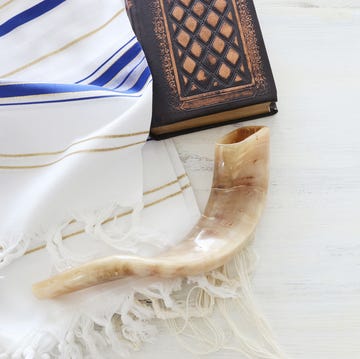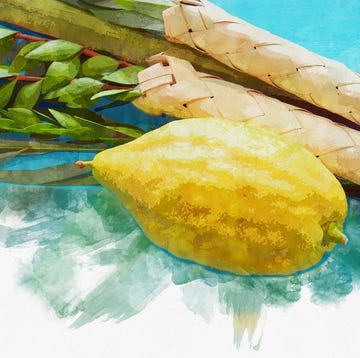Much like Christmas, Diwali, the festival of lights is celebrated as both a religious and secular holiday. At its core, the autumn observance serves as a beacon of hope, reminding us that light and goodness will always triumph over darkness and evil. Brightness and light are overriding themes of Diwali, whose name derives from the Sanskrit word dipavali, which means “row of lights.”
During Diwali (sometimes also spelled Divali) festivals and celebrations, friends and family get together to make crafts, dance in brightly colored saris and kurtas, and string together fairy lights (or, more traditionally, illuminate lamps or candles) to symbolize that no matter how dark the world may seem, light will always find a way to shine through.
Diwali, one of the most widely celebrated festivals according to The Hindu American Foundation, is also a time to strive for knowledge over ignorance, making it a perfect opportunity to step away from the divisive nature of social media to learn something new.
The festival of lights is celebrated over a span of five days, starting on the 13th day of the dark half of the lunar month Ashvina to the second day of the light half of the lunar month Karttika. It’s celebrated by people of Hindu, Buddhist, Jain and Sikh belief systems, as well as those from both Indian and non-Indian descent.
When is Diwali in 2025?
This year, the third day of Diwali, often the most prominent celebration, falls on October 20, 2025.
What is Diwali?
Diwali traditionally commemorates the return of Prince Rama of Ayodhya, his wife Sita, and brother Lakshman after 14 years of exile, The Hindu American Foundation explains. According to the Hindu tradition, Prince Rama is an incarnation of Lord Vishnu and an embodiment of dharma or righteousness. Sita is an incarnation of Lakshmi, the goddess of wealth and prosperity. The residents of Ayodhya were so happy the rightful king and queen had returned, they lit lamps in their honor, an important part of the festivities that persists to this day.
For Snigdha Sur, who is Bengali Hindu and founder and CEO of The Juggernaut, a media company dedicated to telling South Asian stories, “The best part of Diwali is that we can choose to partake of the traditions and stories that most resonate with us. For me, that's Kali and Durga, powerful female goddesses.”
Sur says Kali and Durga are often left out of the traditional origin story of Diwali which is specific to northern India. In southern India, Diwali is recognized as the day Lord Krishna defeated the demon king Narakasura. For Bengali Hindus such as Sur, Diwali coincides with Kali Puja, which celebrates Hindu goddess Kali, who is said to have appeared from Hindu goddess Durga’s brow to win a grueling battle against evil. “I connect with Kali and Durga precisely because they are who the male gods turn to when even their power isn't enough,” says Sur, who majored in South Asian studies at Yale.
What religions celebrate Diwali?
Diwali is perhaps most prominently known as a Hindu holiday, but multiple faiths celebrate the Festival of Lights.
“Diwali often gets watered down and popularized in the media as simply a ‘South Asian’ festival, when in reality it has deep spiritual significance for millions of Hindus, Jains, Buddhists and Sikhs worldwide,” says Sheenie Ambardar, M.D., a Los Angeles-based psychiatrist. Just as Hindu celebrations of Diwali vary by region and personal preference, a Buddhist Diwali celebration will look different from a Sikhi Diwali.
- For people of the Jain faith, Diwali is celebrated as the day Lord Mahavira achieved nirvana.
- For Buddhists, Diwali is honored as the day Hindu Emperor Ashoka converted to Buddhism.
- For Sikhs, Diwali overlaps with Bandi Chhor Divas, which commemorates the day Guru Hargobind was released from prison after 12 years of confinement.
Other than Hinduism, Jainism, Buddhism and Sikhism, there are two more religions most practiced by Indian people: the Muslim faith and Christianity, according to the Pew Center for Research. While Diwali is neither a Muslim nor a Christian holiday, Sur says that “many parts of India have a very syncretic culture” and that many of her Muslim friends attend Diwali parties.
And Diwali’s themes are universal. “What I like best about Diwali is that it emphasizes that good always triumphs over evil and that light always triumphs over darkness,” says Ambardar. “Maybe not right away, and maybe not even in our lifetimes, but eventually, truth and dharma (righteousness) triumph.”
What happens during Diwali?
Because it’s marked by a diverse range of people with their own faith traditions and cultural backgrounds, people celebrate the holiday in their own individual ways. In general, it’s a time for family, performing acts of dana (charitable giving) and seva (selfless service), deep cleaning and decorating the home, performing religious ceremonies, stringing up lights and reflecting on core values. The festivities can span five days, each holding its own significance:
How do people celebrate?
Diwali celebrations frequently include small gifts, like jewelry, meaningful mementos, items for the home or those that hold particular meaning, explains Shereen Bhalla, PhD, director of education at the Hindu American Foundation. And just like many other holidays, food plays an important role as well. “In particular, it is common to see Besan Ladoos given out – these are made out of chickpea, ghee, palm sugar and cardamom,” she adds, noting that specific dishes (and gifts, for that matter) can vary depending on the region and people celebrating.
For Sonya Lalli, author of A Holly Jolly Diwali, Diwali has always meant appreciating each other's company, regardless of what activities happen while they're together. “My parents are from different faiths, have different mother tongues, and hail from different parts of India, and growing up we celebrated Diwali and other holidays in an open and relaxed way, often forgoing specific cultural traditions in favor of hanging out, eating and spending time together,” she explains. “But one thing we always did was light several diya or small candles, offer our prayers and take a few moments to appreciate all that we have been given in this world.”

Brijana Prooker is a Los Angeles-based freelance journalist covering health, gender and culture. She is also mom to two peanut butter-colored rescue pets (a pit bull named Ivy and kitty named Doosis). In addition to Good Housekeeping, her bylines include ELLE, Washington Post, Newsday and YES! Magazine.















